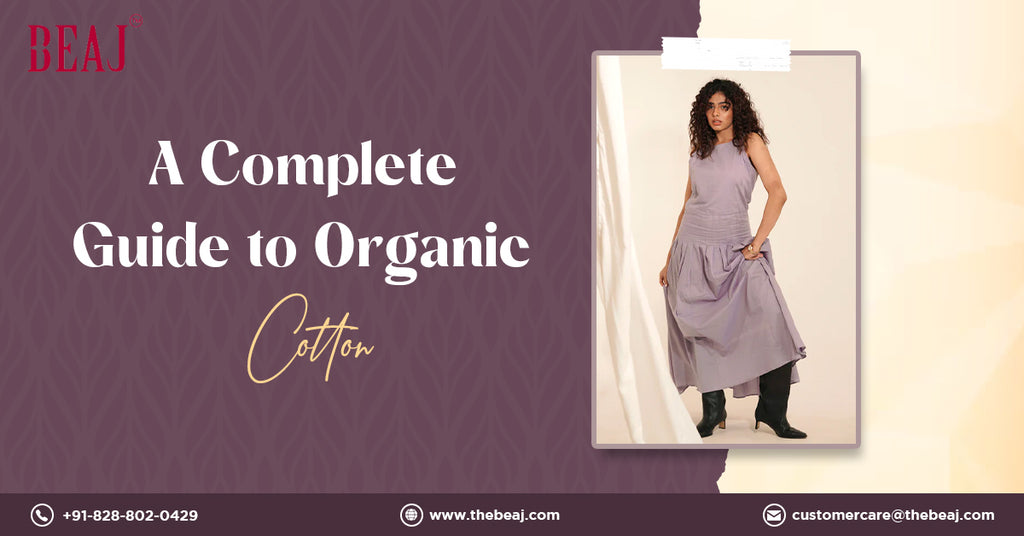A Complete Guide to Organic Cotton
Posted by INDERPREET SINGH

Consumers increasingly turn to sustainable options in all aspects of their lives in today's environmentally conscious world, including fashion. One such sustainable choice gaining popularity is organic cotton. From its cultivation to its benefits, organic cotton offers many benefits for the environment and those wearing it. Let's explore this complete guide to organic cotton to understand its significance and why it's a top choice for eco-conscious people.
What is Organic Cotton?
Organic cotton is grown using methods and materials with a low environmental impact. Unlike conventional cotton farming, which often involves synthetic pesticides and fertilizers, organic cotton farming relies on natural crop cultivation processes. This means no harmful chemicals escape into the soil, waterways, or the air, promoting healthier ecosystems and minimizing harm to farmers and surrounding communities.
Characteristics of Organic Cotton
- Purity: Organic cotton is free from toxic chemicals, making it safer for farmers, workers, and consumers.
- Softness: Organic cotton fabric is known for its softness and comfort, making it ideal for clothing and bedding.
- Breathability: It allows for better airflow, keeping the wearer cool and comfortable.
- Durability: Despite being grown without synthetic chemicals, organic cotton is durable and long-lasting.
- Biodegradability: At the end of its lifecycle, organic cotton decomposes naturally, reducing environmental impact.
Benefits of Using Organic Cotton Fabric
- Environmental Sustainability: Organic cotton farming practices promote soil health, water conservation, and biodiversity, reducing the carbon footprint associated with conventional cotton production.
- Healthier for Farmers and Workers: By eliminating exposure to harmful chemicals, organic cotton farming provides a safer working environment for agricultural workers.
- Better for Consumers: Organic cotton clothing is hypoallergenic and free from residual chemicals, making it ideal for individuals with sensitive skin or allergies.
- Supports Fair Trade Practices: Many organic cotton brands prioritize fair trade practices, ensuring farmers receive fair wages and working conditions.
Where to Buy Organic Cotton Clothes?
- Online Retailers: Numerous online retailers specialize in organic and sustainable clothing like Beaj, offering various options for men, women, and children.
- Local Boutiques: Some local boutiques may carry organic cotton clothing lines, providing unique and locally sourced options.
- Ethical Fashion Brands: Ethical fashion brands are committed to using organic cotton in their collections, promoting transparency and sustainability throughout the supply chain.
- Farmers' Markets: In some regions, farmers' markets may feature vendors selling organic cotton clothing and textiles, providing an opportunity to support local artisans and farmers.
Conclusion
Organic cotton represents a sustainable alternative to conventional cotton, offering numerous benefits for the environment, farmers, workers, and consumers. Its purity, softness, and breathability make it a popular choice for eco-conscious individuals seeking to minimize their environmental footprint without compromising quality or style. Consumers can contribute to a more sustainable and ethical fashion industry by choosing organic cotton while enjoying comfortable and eco-friendly clothing options. So, next time you're shopping for clothes, consider opting for organic cotton to positively impact the planet and support sustainable practices in the fashion industry.

